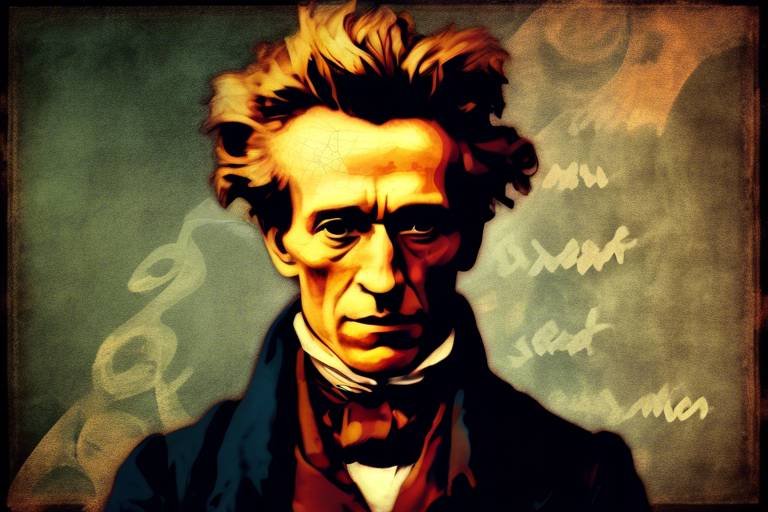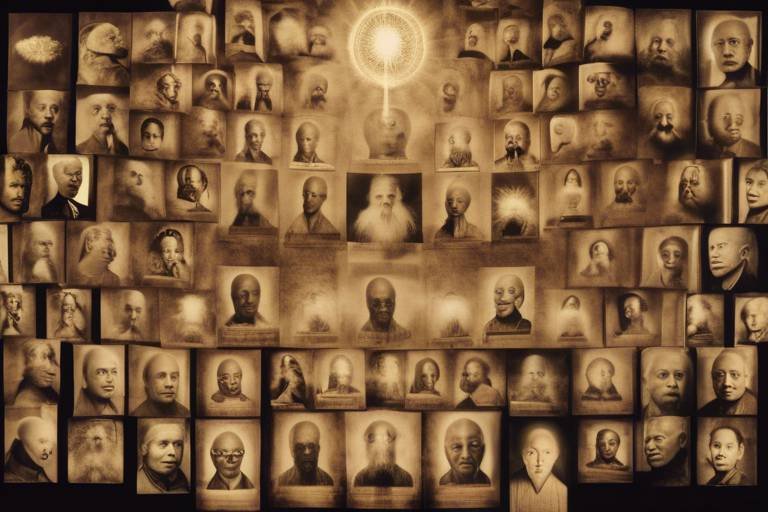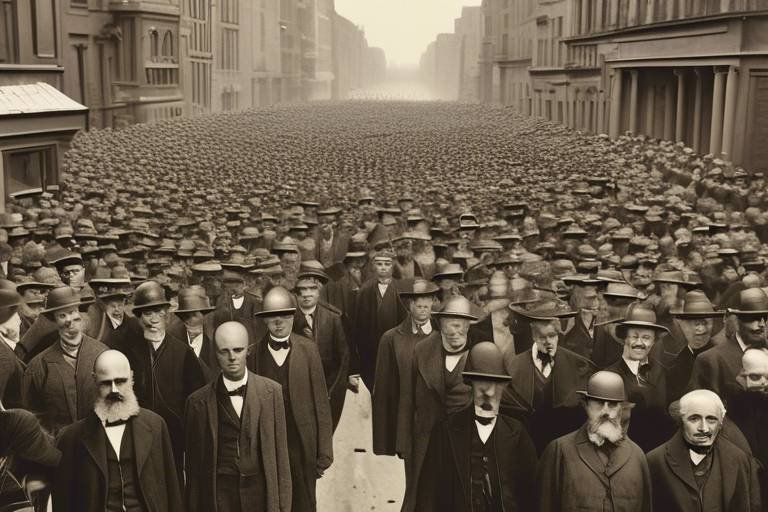Soren Kierkegaard on Existentialism - An Analysis
This article explores the philosophical contributions of Soren Kierkegaard to existentialism, examining his thoughts on individuality, anxiety, and faith, and how these concepts shaped modern existential thought.
Kierkegaard emphasized the importance of individuality, arguing that true selfhood emerges through personal choices and commitments. He believed that each person is responsible for defining their own essence, which is often suppressed by societal expectations and norms. Imagine a world where everyone wears a uniform; it would be hard to see the vibrant colors of individuality shining through. Kierkegaard challenged this notion, insisting that we must break free from the chains of conformity to discover our authentic selves. He posited that individuality is not just a luxury but a necessity for genuine existence. In his view, the journey to self-discovery is fraught with challenges, yet it is this very struggle that makes life meaningful.
Kierkegaard's exploration of anxiety reveals it as a fundamental aspect of the human condition. He saw anxiety not merely as a negative emotion but as a catalyst for deeper self-awareness and understanding of one's existence. Think of it as a dark cloud that, while daunting, can also lead to a profound realization of one's potential. According to Kierkegaard, facing our anxieties can illuminate the path to authenticity. This existential dread, he argued, is a natural response when we confront the abyss of choice and the weight of freedom. It is through this lens of anxiety that we can begin to comprehend the gravity of our decisions and the essence of our being.
Kierkegaard proposed three distinct stages of existence: the aesthetic, the ethical, and the religious. Each stage represents a different approach to life and self-realization, ultimately advocating for a leap into the religious stage. The aesthetic stage is characterized by a pursuit of pleasure and immediate satisfaction, often leading to a superficial existence devoid of deeper meaning. In contrast, the ethical stage involves a commitment to moral principles and societal responsibilities, reflecting a more profound engagement with life. However, Kierkegaard believed that even this stage falls short of true existential fulfillment. The religious stage, which he championed, requires a leap of faith—a courageous embrace of uncertainty.
In the aesthetic stage, individuals are like butterflies flitting from flower to flower, seeking pleasure and immediate gratification. This pursuit often leads to a shallow existence, where deeper meanings and connections are overlooked. Kierkegaard's analysis of human behavior reveals that while the aesthetic stage may seem enticing, it ultimately leaves individuals feeling unfulfilled and yearning for something more substantial.
Transitioning to the ethical stage, individuals begin to grapple with moral dilemmas and societal responsibilities. Here, the focus shifts from personal pleasure to a commitment to ethical principles. This stage represents a more profound engagement with life, as individuals strive to align their actions with their values. Yet, Kierkegaard contended that even this stage lacks the ultimate fulfillment found in the religious stage, where one must confront the complexities of faith and existence.
Central to Kierkegaard's philosophy is the concept of the leap of faith, where individuals must embrace uncertainty and make choices that transcend rationality. This leap is not a blind jump into the void but a conscious decision to trust in something greater than oneself. It challenges us to confront our fears and uncertainties, urging us to take that bold step toward authentic existence. In a world rife with doubt, Kierkegaard's leap of faith invites us to find deeper meaning and connection with the divine.
Kierkegaard argued that faith is inherently subjective, emphasizing personal belief and individual experience over objective truth. This perspective challenges conventional religious and philosophical views on knowledge and existence. For Kierkegaard, faith is not a one-size-fits-all concept; it is deeply personal and unique to each individual. This emphasis on subjectivity invites a richer understanding of faith as a journey rather than a destination.
Kierkegaard's philosophy embraces paradox, suggesting that contradictions within faith and existence reflect the complexity of human experience. He urged individuals to confront and accept these paradoxes in their search for meaning. Just as light can be both a wave and a particle, our understanding of existence can simultaneously hold conflicting truths. This acceptance of paradox becomes a crucial step in navigating the intricate landscape of life.
Kierkegaard's existential ideas laid the groundwork for later existential philosophers, influencing figures like Nietzsche and Sartre. His thoughts on individuality, freedom, and the nature of existence continue to shape contemporary discussions, reminding us of the importance of personal choice and the quest for meaning in an increasingly complex world. Kierkegaard's legacy is a testament to the enduring relevance of existential thought in our lives today.
- What is the main idea of Kierkegaard's philosophy? Kierkegaard's philosophy centers on the importance of individuality, the experience of anxiety, and the necessity of faith in navigating existence.
- How does Kierkegaard define the leap of faith? The leap of faith is a conscious decision to embrace uncertainty and trust in something beyond rational understanding.
- What are the three stages of existence according to Kierkegaard? The three stages are the aesthetic, ethical, and religious stages, each representing different approaches to life and self-realization.

The Essence of Individuality
Søren Kierkegaard, often hailed as the father of existentialism, placed a significant emphasis on the concept of individuality. For Kierkegaard, true selfhood is not merely a product of social conditioning or adherence to societal norms; rather, it emerges through personal choices and commitments. He believed that individuals often find themselves trapped within the confines of societal expectations, which can suppress their authentic existence. This struggle between societal pressures and personal authenticity is a central theme in Kierkegaard's philosophy. Imagine a bird in a cage, longing to soar freely in the sky; this metaphor captures the essence of how individuals can feel confined by external expectations.
Kierkegaard argued that to truly understand oneself, one must engage in a process of self-discovery that involves questioning the very fabric of one's existence. This journey is not merely about understanding who you are in relation to others, but about finding your unique path in the world. He famously stated, "The most common form of despair is not being who you are." This quote resonates with many, as it encapsulates the struggle of living authentically in a world that often demands conformity.
Moreover, Kierkegaard's concept of individuality is intricately linked to the idea of existential choice. He posited that every individual is faced with choices that define their essence. These choices, however, are not always straightforward; they often come with a sense of anxiety and uncertainty. Kierkegaard believed that this anxiety is a natural part of the human condition, serving as a catalyst for deeper self-awareness. In essence, the act of choosing is not just about making decisions; it is about shaping one's identity and existence.
To further illustrate Kierkegaard's views, consider the following table that contrasts individuality with societal expectations:
| Aspect | Individuality | Societal Expectations |
|---|---|---|
| Definition | Personal authenticity and self-definition | Conformity to social norms |
| Source | Internal beliefs and values | External pressures and norms |
| Outcome | True self-realization | Superficial existence |
In conclusion, Kierkegaard's exploration of individuality encourages us to embrace our unique identities and make choices that reflect our true selves. By doing so, we can break free from the constraints of societal expectations and embark on a journey of authentic existence. This journey is fraught with challenges, but it is also filled with the potential for profound personal growth and fulfillment. As we navigate through life, we must ask ourselves: Are we living authentically, or are we merely existing as reflections of what society expects us to be?
- What is Kierkegaard's view on individuality? Kierkegaard believes that true individuality emerges through personal choices and commitments, rather than conforming to societal norms.
- How does anxiety relate to individuality? Anxiety, according to Kierkegaard, is a fundamental aspect of the human condition that prompts deeper self-awareness and understanding of one's existence.
- What does Kierkegaard mean by the leap of faith? The leap of faith involves embracing uncertainty and making choices that transcend rationality to find deeper meaning in life.

Anxiety and Existential Dread
Soren Kierkegaard had a profound understanding of the human condition, particularly when it comes to the complex emotions we experience. He identified anxiety as a fundamental aspect of our existence, a feeling that many of us grapple with daily. But what exactly is this anxiety? It's not merely a fleeting worry about tomorrow’s meeting or a nagging thought about an upcoming deadline. Instead, Kierkegaard viewed it as a deep-seated dread that arises when we confront the vastness of our own freedom and the weight of our choices. It’s that unsettling sensation that makes us question our very purpose and the meaning of our lives.
Imagine standing at the edge of a cliff, looking down into an abyss. That feeling of vertigo, the rush of possibilities and the fear of falling, encapsulates Kierkegaard’s idea of existential dread. This anxiety is not just a negative force; rather, it can serve as a catalyst for self-discovery. It pushes us to examine our lives more critically and encourages a deeper understanding of who we are. In fact, Kierkegaard believed that this state of anxiety could lead to a more profound self-awareness, prompting individuals to confront their existence and the choices that define it.
Kierkegaard’s exploration of anxiety is intricately tied to the notion of choice. Every decision we make carries weight and consequences, and the freedom to choose can be both liberating and terrifying. It’s this paradox that creates tension within us. We may feel overwhelmed by the sheer number of options available, leading to what some call “analysis paralysis.” In this state, we might find ourselves caught in a loop of indecision, fearing the outcomes of our choices. Yet, Kierkegaard would argue that this anxiety is essential; it is a sign that we are alive and engaged with our existence.
To illustrate this further, consider the following aspects of anxiety as described by Kierkegaard:
- Awareness of Freedom: The realization that we have the power to shape our own lives can be both exhilarating and daunting.
- Confrontation with the Self: Anxiety forces us to look inward, to question our values and beliefs, and to understand our true selves.
- Existential Responsibility: With freedom comes responsibility; we must own our choices and their implications.
Ultimately, Kierkegaard’s insights into anxiety and existential dread challenge us to embrace these feelings rather than shy away from them. By facing our anxiety head-on, we can embark on a journey of self-discovery that leads to a more authentic existence. It's a call to action, urging us to dive into the depths of our fears and uncertainties, and to emerge with a clearer understanding of who we are and what we truly desire.
In a world that often prioritizes certainty and security, Kierkegaard’s philosophy reminds us that it is through our struggles with anxiety that we can find meaning. Embracing the discomfort of existential dread can ultimately lead us to a richer, more fulfilling life. So, the next time you feel that familiar twinge of anxiety, consider it not just a burden, but a profound opportunity for growth and understanding.
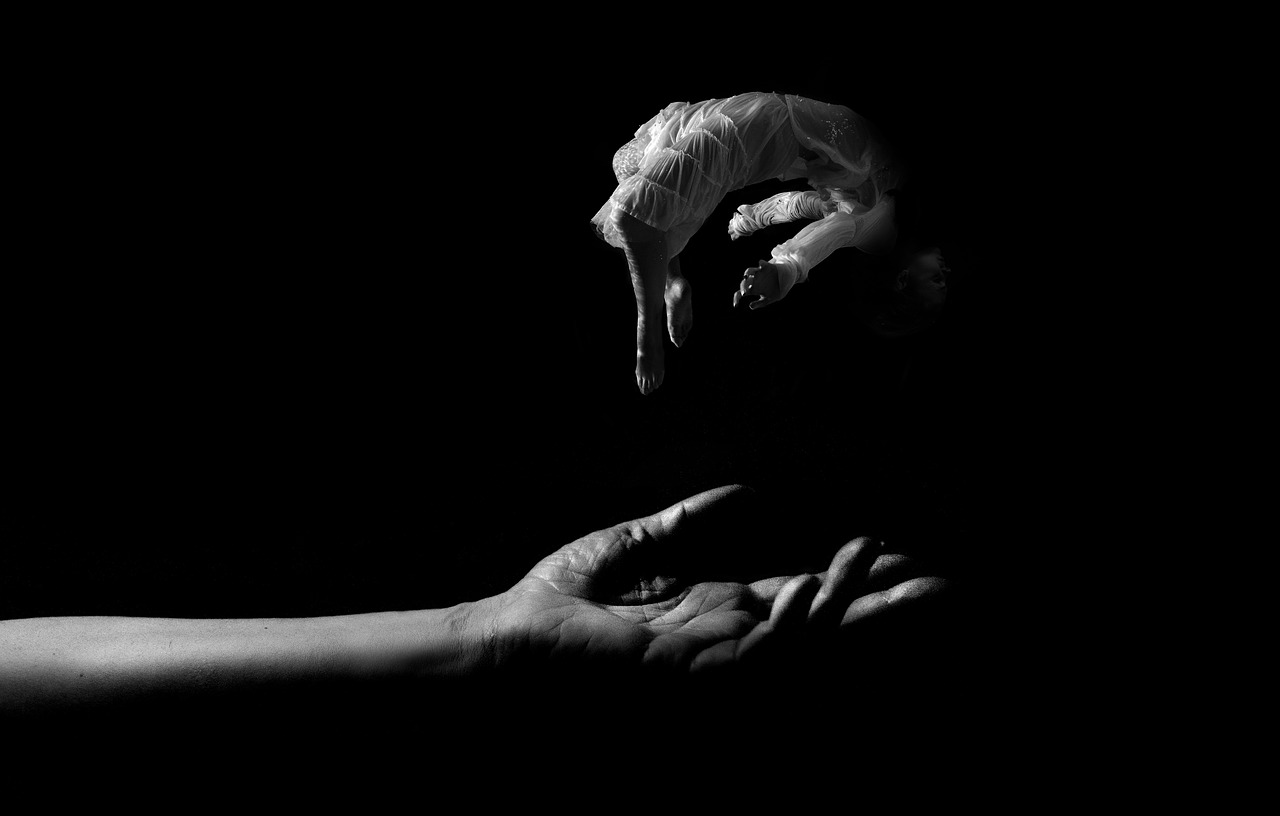
Søren Kierkegaard, often considered the father of existentialism, proposed a fascinating framework for understanding human existence through three distinct stages: the aesthetic, the ethical, and the religious. Each stage represents a different approach to life, self-realization, and the pursuit of meaning. It's like climbing a mountain; the higher you go, the clearer the view becomes, but the journey requires effort and commitment.
At the base of this metaphorical mountain lies the aesthetic stage. Here, individuals are primarily driven by the pursuit of pleasure and immediate gratification. They seek to satisfy their desires, often indulging in sensory experiences and fleeting joys. However, Kierkegaard warns that this lifestyle can lead to a superficial existence, where deeper meaning is lost amidst the chaos of constant pleasure-seeking. Imagine a party that never ends; while it might seem fun at first, eventually, the laughter fades, and the emptiness of the experience sets in.
As one ascends, they encounter the ethical stage. This stage signifies a shift from hedonism to a more profound engagement with life. Individuals in this phase commit to moral principles and societal responsibilities, striving to live in accordance with ethical standards. It's a more serious path, where one starts to grapple with the implications of their choices and their impact on others. However, Kierkegaard believed that even this stage, while more meaningful than the aesthetic, still lacks true existential fulfillment. It’s like climbing higher up the mountain only to find that the summit is still out of reach.
Finally, at the pinnacle of Kierkegaard’s philosophy lies the religious stage. This stage represents a leap into the unknown, where individuals embrace faith and the uncertainties of existence. Here, one must confront the paradoxes of life and make choices that transcend rationality. It’s about recognizing that, despite the chaos and contradictions, there is a deeper connection with the divine and a more profound sense of purpose. This leap of faith is not merely a step but a daring jump into the abyss of uncertainty, where true selfhood and authenticity can be discovered. It’s akin to standing on the edge of a cliff, where the view is breathtaking, but the leap requires immense courage.
In essence, Kierkegaard’s stages of existence compel us to reflect on our own lives. Are we stuck in the aesthetic stage, chasing after fleeting pleasures? Have we moved to the ethical stage, where our choices carry weight? Or are we ready to take the leap into the religious stage, embracing faith and the unknown? Each stage offers valuable insights into the human condition, urging us to strive for authenticity and deeper meaning in our lives.
- What are the three stages of existence according to Kierkegaard?
Kierkegaard identifies the aesthetic, ethical, and religious stages as the three key approaches to life and self-realization.
- How does the aesthetic stage affect personal fulfillment?
The aesthetic stage often leads to a superficial existence focused on pleasure, which can ultimately result in a lack of deeper meaning in life.
- What does Kierkegaard mean by the leap of faith?
The leap of faith refers to embracing uncertainty and making choices that transcend rationality to find deeper meaning and connection with the divine.
- Why is the religious stage considered the highest stage?
The religious stage is seen as the highest because it encourages individuals to confront paradoxes and embrace faith, leading to true selfhood and authenticity.
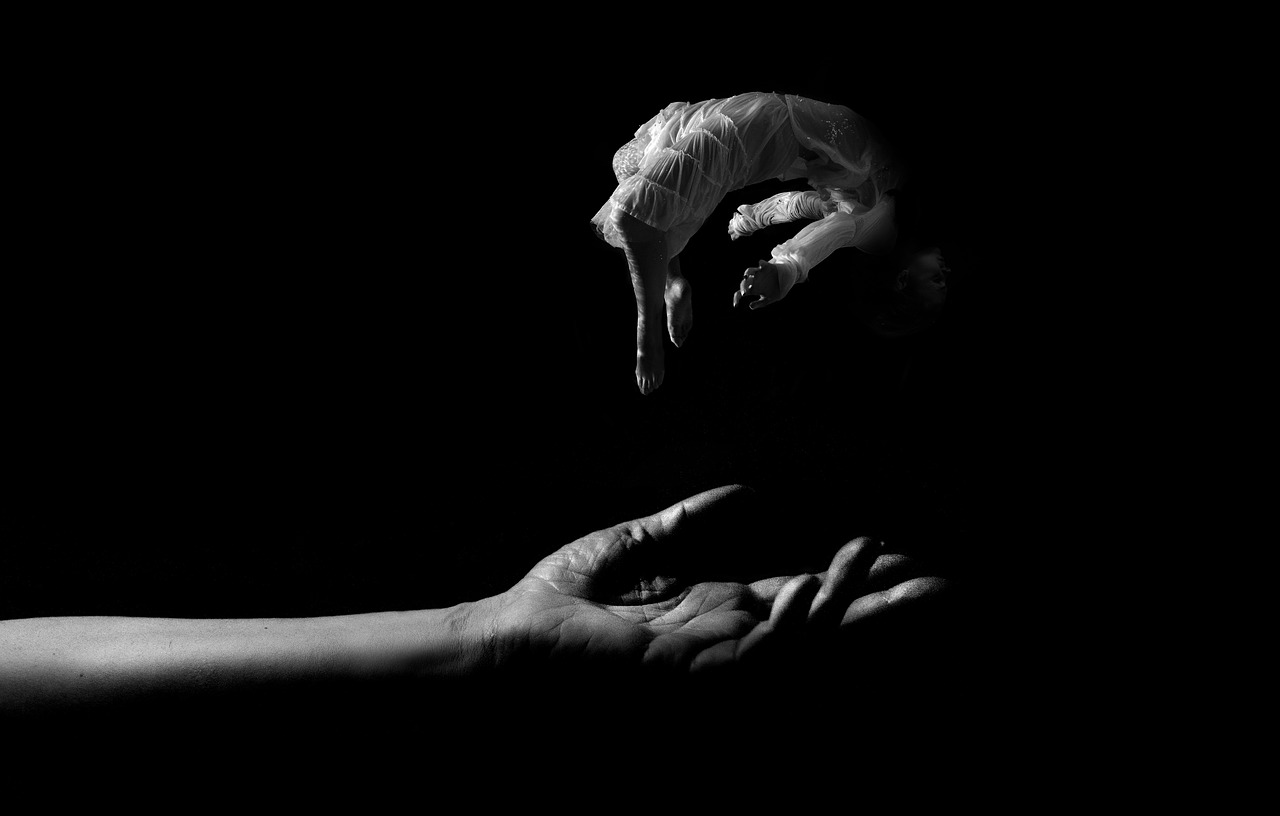
The Aesthetic Stage
The aesthetic stage, as articulated by Soren Kierkegaard, represents a crucial phase in the journey of self-realization. In this stage, individuals are primarily driven by the pursuit of pleasure and immediate gratification. It’s like being on a rollercoaster ride—thrilling and exhilarating, but ultimately fleeting. People in this stage often find themselves caught in a whirlwind of experiences, seeking joy and satisfaction in the moment without considering the long-term implications of their choices.
Kierkegaard argues that those who dwell in the aesthetic stage live a life that is often superficial. They chase after various pleasures—be it through art, relationships, or other sensory experiences—yet they may feel an underlying emptiness. This pursuit can lead to a cycle of constant desire, where one pleasure is quickly replaced by the next, creating a never-ending quest for satisfaction. It's akin to trying to fill a bottomless pit; no matter how much you pour in, it never seems to be enough.
In this stage, individuals are often characterized by:
- Impulsiveness: Decisions are made based on immediate desires rather than thoughtful consideration.
- Escapism: A tendency to avoid deeper issues or responsibilities by immersing themselves in pleasurable activities.
- Superficiality: A lack of depth in relationships and experiences, leading to a sense of disconnection from oneself and others.
While the aesthetic stage can be enticing, Kierkegaard warns that it ultimately lacks true meaning. The thrill of the moment can easily give way to despair when one realizes that these pleasures do not lead to genuine fulfillment. It's a bit like eating cotton candy—sweet and delightful at first, but it leaves you hungry for something more substantial. This realization often acts as a catalyst for individuals to seek a deeper understanding of themselves and their existence.
Thus, the aesthetic stage serves as a necessary, albeit temporary, phase in Kierkegaard's model of existence. It lays the groundwork for the next stage—the ethical stage—where individuals begin to confront the implications of their choices and seek a more meaningful engagement with life. The transition from the aesthetic to the ethical stage is not just a shift in behavior; it represents a profound awakening to the complexities of existence and the need for a more grounded approach to life.
- What is the aesthetic stage according to Kierkegaard?
The aesthetic stage is characterized by the pursuit of pleasure and immediate satisfaction, often leading to a superficial existence. - How does the aesthetic stage affect personal growth?
While it can be enjoyable, the aesthetic stage may hinder deeper self-awareness and fulfillment, prompting individuals to seek more meaningful experiences. - What comes after the aesthetic stage?
After the aesthetic stage, Kierkegaard suggests moving into the ethical stage, where individuals begin to consider moral principles and societal responsibilities.
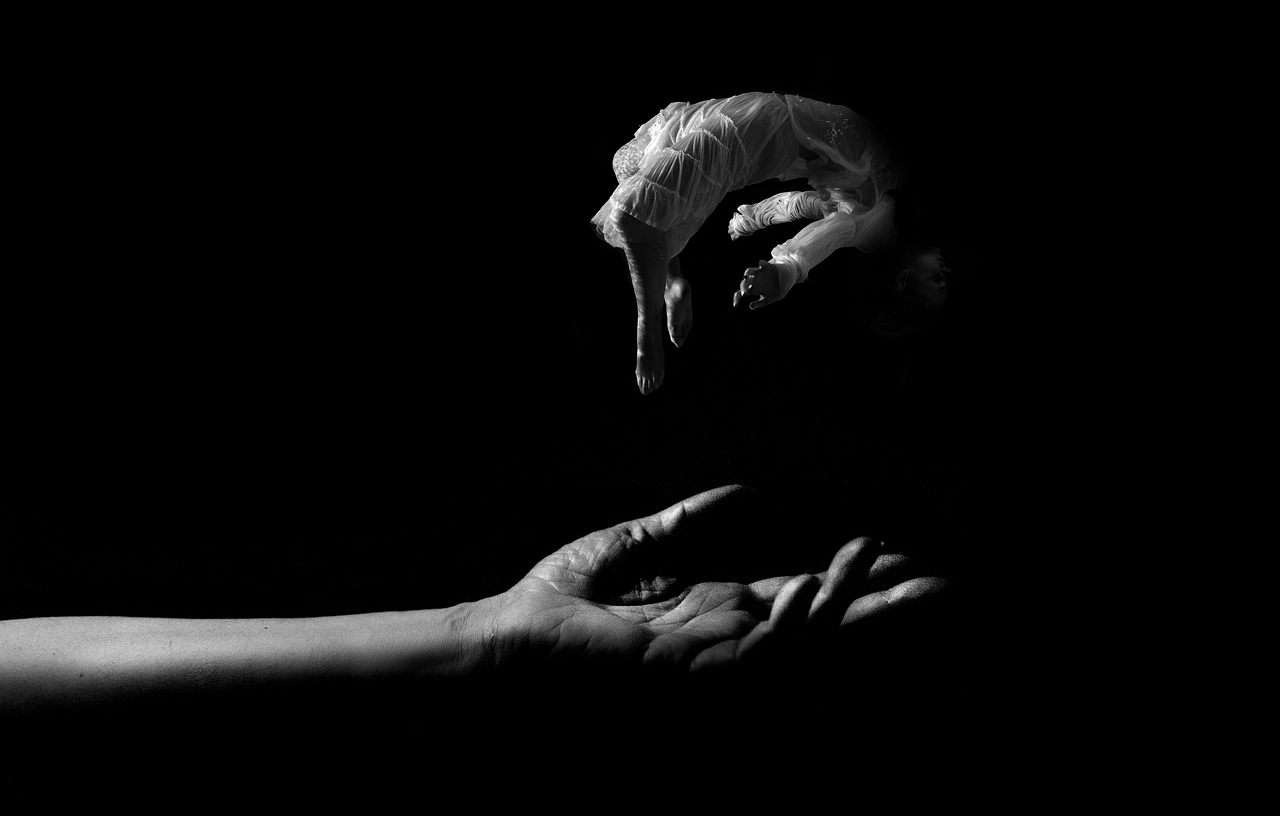
The Ethical Stage
In Kierkegaard's framework, the ethical stage represents a significant evolution in the journey of self-realization. Unlike the aesthetic stage, where individuals chase fleeting pleasures and immediate gratification, the ethical stage demands a deeper engagement with life through the lens of moral principles and societal responsibilities. Here, individuals begin to recognize that their actions have consequences not just for themselves but for others as well. This awareness sparks a profound transformation, urging individuals to commit to a set of values that guide their choices.
At this stage, individuals grapple with the concept of duty—what it means to act responsibly in a world that often prioritizes self-interest. Kierkegaard believed that true fulfillment cannot be found in mere hedonism; rather, it is discovered in the commitment to something greater than oneself. This might include familial obligations, professional responsibilities, or civic duties. The ethical stage challenges individuals to reflect on their roles within society and to understand the weight of their decisions.
However, Kierkegaard also pointed out that while the ethical stage is a step towards genuine selfhood, it still falls short of ultimate existential fulfillment. Individuals may find themselves trapped in rigid societal norms, struggling to balance personal desires with the expectations imposed by culture. This tension can lead to a sense of alienation, as people may feel that their authentic selves are being suppressed by the demands of ethical living.
To illustrate the differences between the aesthetic and ethical stages, consider the following table:
| Aspect | Aesthetic Stage | Ethical Stage |
|---|---|---|
| Focus | Pleasure and immediate satisfaction | Moral principles and societal responsibilities |
| Self-Engagement | Superficial and transient | Deeper and more meaningful |
| Commitment | None or minimal | Strong commitment to values |
| Fulfillment | Temporary happiness | Potential alienation from self |
Ultimately, the ethical stage serves as a vital stepping stone toward the religious stage, where individuals are called to embrace a more profound sense of existence that transcends ethical norms. It invites us to ponder the question: can we ever truly be free if we are bound by the expectations of society? Kierkegaard encourages us to explore this tension, recognizing that while ethical living is essential, it is merely a part of the larger quest for authentic existence.
- What is the ethical stage in Kierkegaard's philosophy?
The ethical stage is a level of existence where individuals commit to moral principles and societal responsibilities, moving beyond the superficial pleasures of the aesthetic stage. - How does the ethical stage differ from the aesthetic stage?
The aesthetic stage focuses on immediate satisfaction and pleasure, while the ethical stage emphasizes deeper engagement with life through moral commitments. - What challenges do individuals face in the ethical stage?
Individuals may struggle with balancing personal desires and societal expectations, leading to feelings of alienation and conflict.
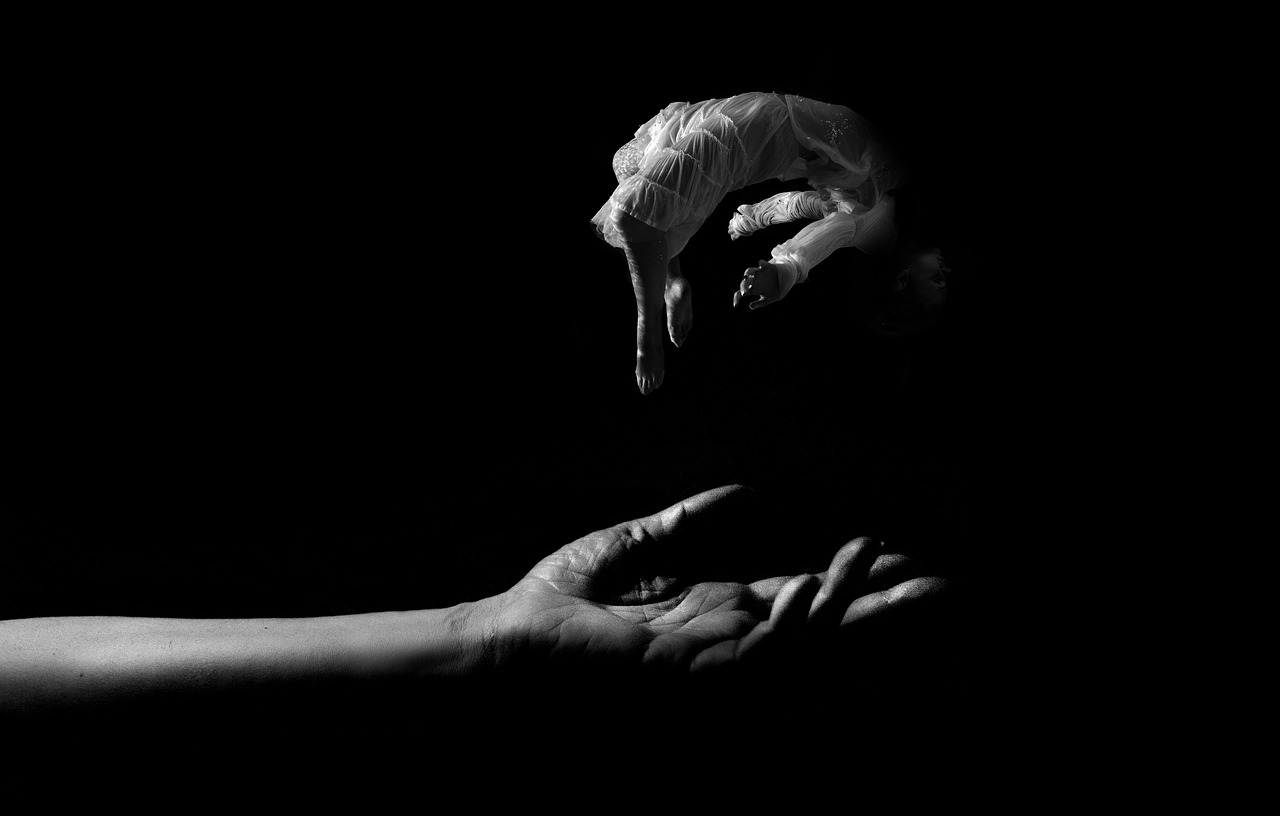
The Leap of Faith
Søren Kierkegaard's concept of the leap of faith is one of the most intriguing and profound elements of his philosophy. It encapsulates the idea that, in order to truly grasp the essence of existence, one must be willing to embrace uncertainty and make choices that defy rationality. Imagine standing at the edge of a cliff, looking down into an abyss. The leap of faith is akin to that moment when you decide to jump, trusting that something greater will catch you. It is not merely a blind leap, but a deeply personal decision that comes from an authentic engagement with one's own existence.
Kierkegaard believed that life is filled with existential dilemmas, and often, the answers we seek are not found through logical reasoning or empirical evidence. Instead, they lie in the realm of personal belief and subjective experience. This is where the leap of faith becomes essential. It requires individuals to confront their own fears and doubts, to acknowledge the paradoxes of life, and to accept that certainty is often an illusion. By taking this leap, one can transcend the mundane and connect with the divine in a more meaningful way.
In Kierkegaard's view, there are several key aspects to consider regarding the leap of faith:
- Embracing Uncertainty: The leap of faith is fundamentally about accepting that life is unpredictable. It encourages individuals to step outside their comfort zones and embrace the unknown.
- Personal Commitment: This leap is not a one-size-fits-all solution; it is deeply personal. Each individual must find their own path and make commitments that resonate with their unique experiences and values.
- Defying Rationality: The leap often requires one to go against societal norms and expectations, which can be daunting. However, it is through this defiance that true selfhood emerges.
Moreover, the leap of faith is not a one-time event but an ongoing process. Life continually presents us with opportunities to leap, whether it’s in relationships, career choices, or personal beliefs. Each leap brings with it a new set of challenges and insights, shaping our understanding of ourselves and the world around us. Kierkegaard suggests that these moments of faith are what ultimately lead to a richer, more fulfilling existence.
In conclusion, the leap of faith is a cornerstone of Kierkegaard's existential thought. It invites us to look beyond the surface of our lives and engage with the deeper questions of existence. By taking that leap, we not only confront our anxieties and uncertainties but also open ourselves up to the possibility of profound transformation and connection with the divine. So, are you ready to take the leap?
- What is the leap of faith according to Kierkegaard?
The leap of faith is the act of embracing uncertainty and making personal choices that transcend rationality to find deeper meaning and connection with the divine. - Why is the leap of faith important?
It is important because it encourages individuals to confront their fears, embrace the unknown, and engage authentically with their existence. - How does the leap of faith relate to individuality?
The leap of faith emphasizes personal commitment and subjective experience, allowing individuals to define their own paths and beliefs.
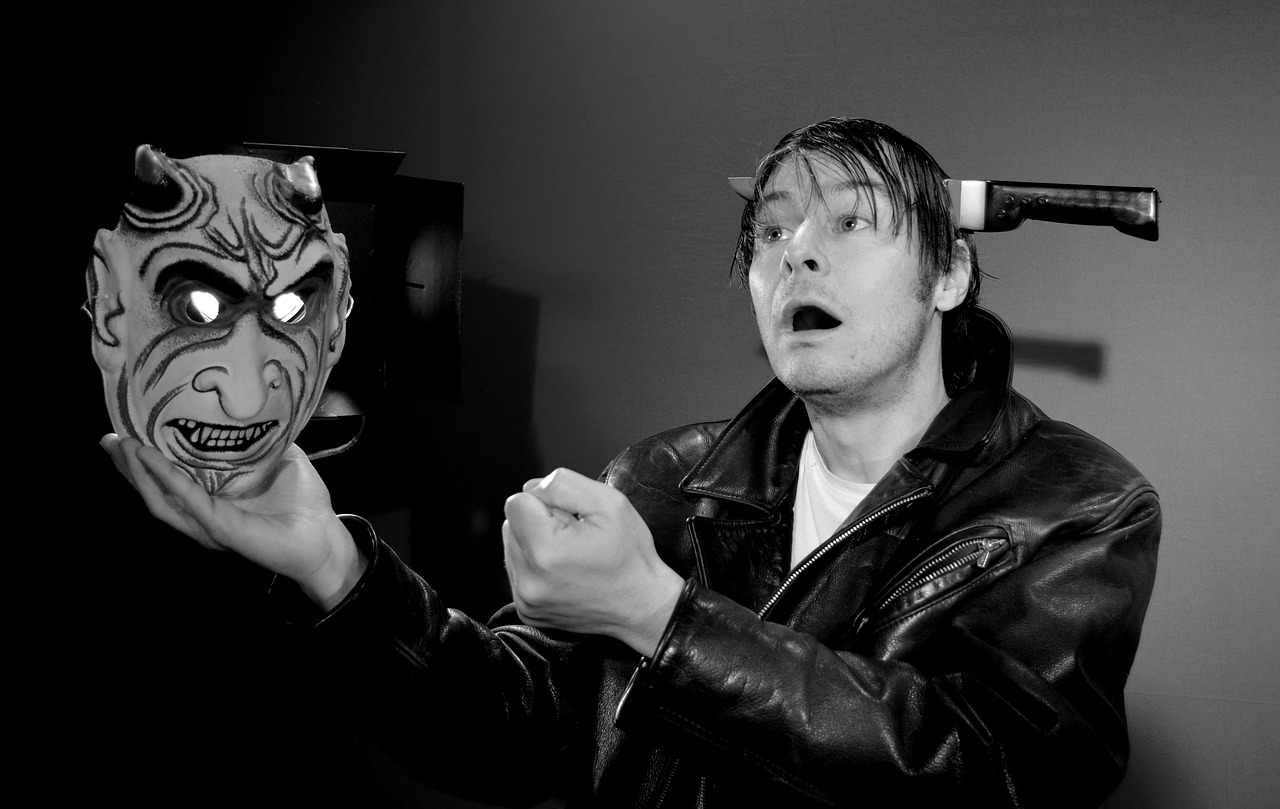
leap of faith,
This article explores the philosophical contributions of Soren Kierkegaard to existentialism, examining his thoughts on individuality, anxiety, and faith, and how these concepts shaped modern existential thought.
Kierkegaard emphasized the importance of individuality, arguing that true selfhood emerges through personal choices and commitments, contrasting with societal expectations and norms that often suppress authentic existence.
Kierkegaard's exploration of anxiety reveals it as a fundamental aspect of the human condition, highlighting how it can lead to deeper self-awareness and understanding of one's existence and choices.
Kierkegaard proposed three stages of existence: the aesthetic, the ethical, and the religious, each representing different approaches to life and self-realization, ultimately advocating for a leap into the religious stage.
In the aesthetic stage, individuals seek pleasure and immediate satisfaction, often leading to a superficial existence that lacks deeper meaning, according to Kierkegaard's analysis of human behavior and motivation.
The ethical stage involves commitment to moral principles and societal responsibilities, reflecting a more profound engagement with life, though Kierkegaard believed it still fell short of true existential fulfillment.
Central to Kierkegaard's philosophy is the concept of the leap of faith, where individuals must embrace uncertainty and make choices that transcend rationality to find deeper meaning and connection with the divine. This leap is not merely an intellectual exercise; it is a profound act of will and commitment. Kierkegaard believed that life is filled with uncertainties, and it is in these moments of doubt that one must choose to believe. The leap of faith requires courage, as it often involves stepping away from the safety of reason and into the unknown.
To understand the leap of faith, it’s essential to grasp its components:
- Embracing Uncertainty: Life is unpredictable, and the leap of faith acknowledges that certainty is often an illusion.
- Personal Commitment: This act is deeply personal, requiring individuals to commit to their beliefs despite the absence of empirical evidence.
- Connection with the Divine: The leap is ultimately about forging a relationship with something greater than oneself, which may be interpreted as God or a universal truth.
Kierkegaard illustrated this leap through the biblical figure of Abraham, who was asked to sacrifice his son Isaac. Abraham’s willingness to obey God despite the apparent absurdity of the command exemplifies the leap of faith. It’s a demonstration of trust that transcends rational understanding, highlighting that true faith often exists in the realm of paradoxes and contradictions.
Kierkegaard argued that faith is inherently subjective, emphasizing personal belief and individual experience over objective truth, which challenges conventional religious and philosophical perspectives on knowledge and existence.
Kierkegaard's philosophy embraces paradox, suggesting that contradictions within faith and existence reflect the complexity of human experience, urging individuals to confront and accept these paradoxes in their search for meaning.
Kierkegaard's existential ideas laid the groundwork for later existential philosophers, influencing figures like Nietzsche and Sartre, and shaping contemporary discussions on individuality, freedom, and the nature of existence.
The leap of faith is a fundamental concept in Kierkegaard's philosophy, representing the act of embracing uncertainty and making choices based on personal belief rather than rationality.
Kierkegaard considers anxiety a crucial aspect of the human condition, suggesting that it can lead to greater self-awareness and understanding of one's existence.
Kierkegaard outlines three stages: the aesthetic, the ethical, and the religious, each representing different approaches to life and self-realization.
Individuality is central to Kierkegaard's thought, as he believes that true selfhood emerges through personal choices and commitments, rather than conforming to societal norms.
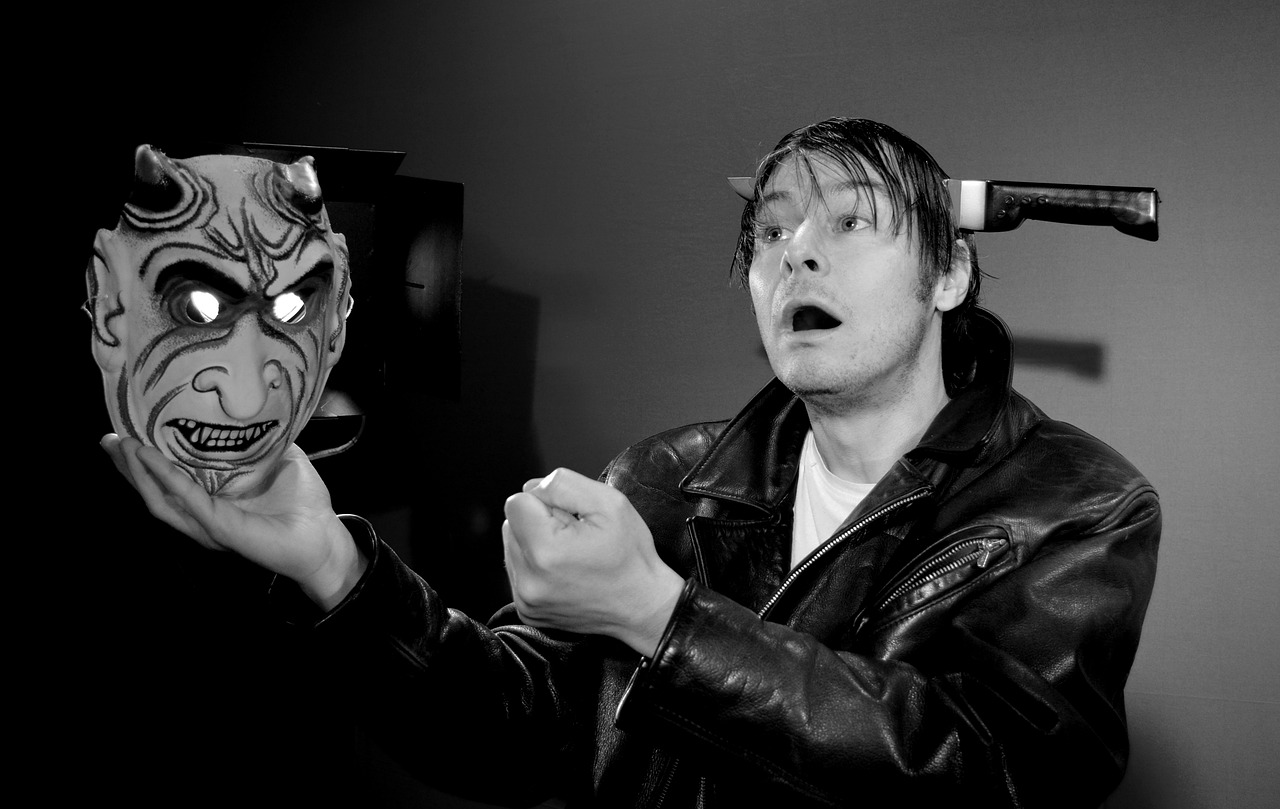
where individuals must embrace uncertainty and make choices that transcend rationality to find deeper meaning and connection with the divine.
This article explores the philosophical contributions of Soren Kierkegaard to existentialism, examining his thoughts on individuality, anxiety, and faith, and how these concepts shaped modern existential thought.
Kierkegaard emphasized the importance of individuality, arguing that true selfhood emerges through personal choices and commitments, contrasting with societal expectations and norms that often suppress authentic existence.
Kierkegaard's exploration of anxiety reveals it as a fundamental aspect of the human condition, highlighting how it can lead to deeper self-awareness and understanding of one's existence and choices.
Kierkegaard proposed three stages of existence: the aesthetic, the ethical, and the religious, each representing different approaches to life and self-realization, ultimately advocating for a leap into the religious stage.
In the aesthetic stage, individuals seek pleasure and immediate satisfaction, often leading to a superficial existence that lacks deeper meaning, according to Kierkegaard's analysis of human behavior and motivation.
The ethical stage involves commitment to moral principles and societal responsibilities, reflecting a more profound engagement with life, though Kierkegaard believed it still fell short of true existential fulfillment.
Central to Kierkegaard's philosophy is the concept of the leap of faith, where individuals must embrace uncertainty and make choices that transcend rationality to find deeper meaning and connection with the divine.
In this leap of faith, Kierkegaard challenges us to step outside the confines of logical reasoning and societal expectations. It’s about taking a risk, a bold move into the unknown, where we confront our fears and uncertainties. Imagine standing at the edge of a cliff, gazing into the abyss below. The leap is not just a physical act; it's a profound metaphor for choosing to trust in something greater than ourselves, despite the lack of tangible evidence. This act of faith is what connects us to the divine, allowing us to transcend mere existence and embrace a more meaningful life.
To truly understand this leap, we must recognize the tension between faith and reason. Kierkegaard argues that while reason provides a framework for understanding the world, it cannot fully grasp the complexities of human existence and the divine. This is where faith comes into play—it's an intimate, personal journey that defies objective scrutiny. Instead of seeking absolute truths, we must learn to navigate the uncertainties of life with courage and conviction.
Moreover, Kierkegaard's notion of the leap of faith encourages us to engage with our own subjective experiences. Each individual's path to meaning is unique, shaped by personal struggles, beliefs, and insights. This subjectivity is not a weakness; rather, it is a strength that allows us to forge our own identities and connect with the divine on a personal level. By embracing our individual journeys, we can find a sense of belonging in a world that often feels chaotic and disconnected.
Ultimately, the leap of faith is about embracing the paradoxes of life. It invites us to accept that certainty is an illusion and that true growth often stems from discomfort and uncertainty. In doing so, we open ourselves up to profound insights and connections that enrich our lives and deepen our understanding of existence itself.
Kierkegaard argued that faith is inherently subjective, emphasizing personal belief and individual experience over objective truth, which challenges conventional religious and philosophical perspectives on knowledge and existence.
Kierkegaard's philosophy embraces paradox, suggesting that contradictions within faith and existence reflect the complexity of human experience, urging individuals to confront and accept these paradoxes in their search for meaning.
Kierkegaard's existential ideas laid the groundwork for later existential philosophers, influencing figures like Nietzsche and Sartre, and shaping contemporary discussions on individuality, freedom, and the nature of existence.
- What is the leap of faith according to Kierkegaard?
The leap of faith is the act of embracing uncertainty and making choices based on personal belief rather than rational evidence, seeking a deeper connection with the divine.
- How does Kierkegaard define individuality?
Kierkegaard defines individuality as the true self that emerges through personal choices and commitments, contrasting with societal norms that often suppress authentic existence.
- What are the three stages of existence proposed by Kierkegaard?
The three stages are the aesthetic, the ethical, and the religious, each representing different approaches to life and self-realization.

Soren Kierkegaard, often hailed as the father of existentialism, placed a significant emphasis on the concept of faith as a deeply personal and subjective experience. Unlike many philosophical frameworks that strive for objective truths, Kierkegaard argued that faith is not a one-size-fits-all concept. It is, instead, a unique journey for each individual, shaped by personal experiences, emotions, and existential dilemmas. This perspective challenges the traditional views of religion and philosophy, which often prioritize universal truths over individual beliefs.
At the heart of Kierkegaard's philosophy is the idea that faith cannot be quantified or measured. It is not merely about adherence to doctrines or rituals; rather, it is an intimate relationship with the divine that requires personal commitment and introspection. This notion invites individuals to consider their own beliefs and the reasons behind them, leading to a more profound understanding of their existence. Kierkegaard believed that through this process, one could confront the anxiety and uncertainty that often accompany faith, ultimately finding solace in the acceptance of one's subjective experience.
Moreover, Kierkegaard distinguished between two types of knowledge: objective knowledge, which can be universally applied, and subjective knowledge, which is personal and unique to each individual. In his view, faith falls under the latter category. He famously stated, "Subjectivity is Truth," emphasizing that the truth of faith lies not in its objective validation but in its personal significance to the believer. This perspective invites a rich tapestry of beliefs, where each individual crafts their own understanding of the divine based on their life experiences.
One of the most compelling aspects of Kierkegaard's exploration of faith is the notion of paradox. He argued that faith often involves embracing contradictions—believing in the impossible, finding strength in weakness, and discovering meaning in suffering. These paradoxes are not mere obstacles; instead, they are integral to the human experience and the quest for meaning. By confronting these contradictions, individuals can achieve a deeper understanding of their faith and, consequently, their existence.
To illustrate Kierkegaard's ideas on faith and subjectivity, consider the following table that outlines the key differences between objective and subjective knowledge:
| Aspect | Objective Knowledge | Subjective Knowledge |
|---|---|---|
| Nature | Universal and measurable | Personal and unique |
| Validation | Can be empirically tested | Rooted in individual experience |
| Application | Applicable to all | Specific to the individual |
| Examples | Scientific facts, mathematical truths | Personal beliefs, emotional experiences |
In conclusion, Kierkegaard's insights into faith and subjectivity invite us to reflect on our own beliefs and the personal journeys that shape them. By recognizing the importance of individual experience in the realm of faith, we can foster a more inclusive and understanding approach to spirituality. This perspective not only enriches our own lives but also encourages a deeper connection with others who may be navigating their own unique paths of belief.
- What is the main idea of Kierkegaard's view on faith?
Kierkegaard believes that faith is a personal and subjective experience that cannot be universally defined or measured. - How does Kierkegaard differentiate between objective and subjective knowledge?
Objective knowledge is universal and measurable, while subjective knowledge is personal and unique to each individual. - What role do paradoxes play in Kierkegaard's philosophy?
Paradoxes are essential for understanding faith, as they reflect the complexities and contradictions inherent in human experience.
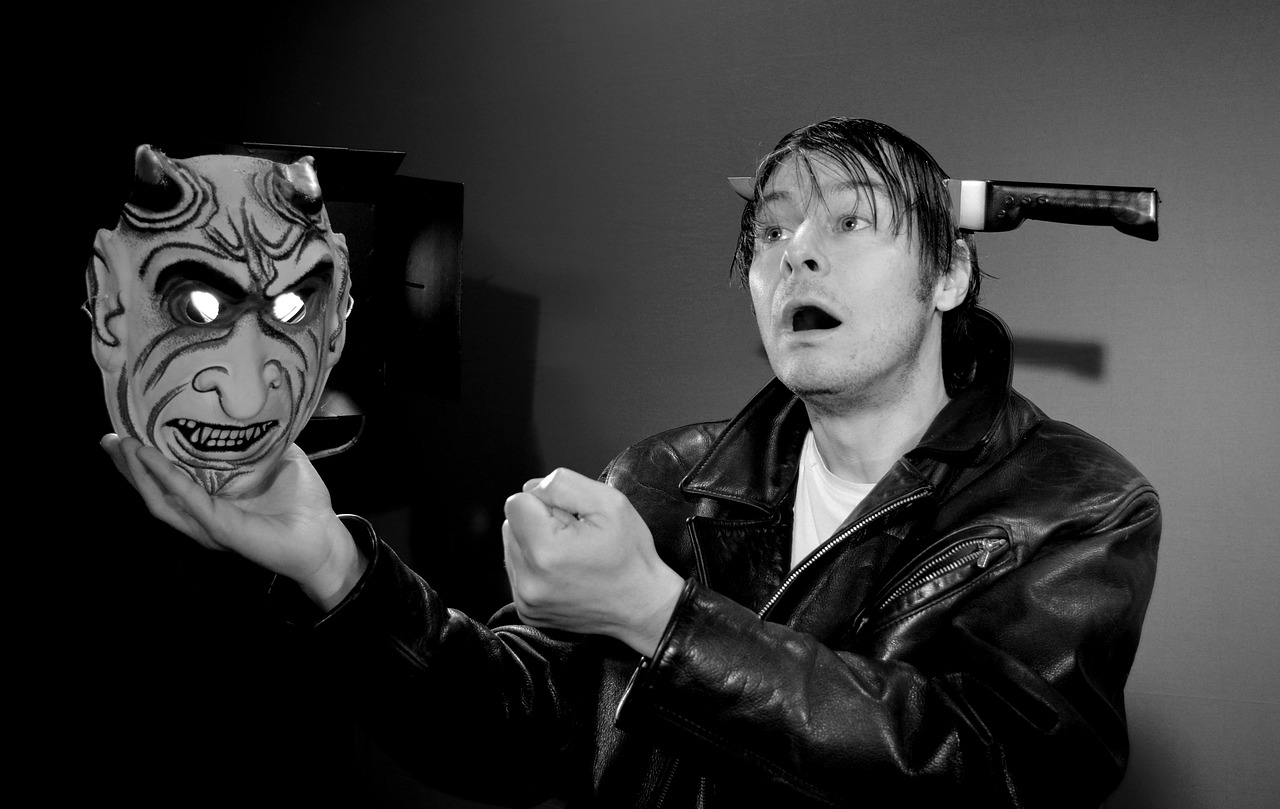
Soren Kierkegaard's philosophy is deeply intertwined with the concept of paradox. He believed that life is filled with contradictions, and it's these very contradictions that paint the rich tapestry of human experience. For Kierkegaard, embracing paradox is not just an intellectual exercise; it's a necessary part of our journey toward understanding ourselves and our place in the world. Have you ever felt torn between two choices, each pulling you in a different direction? That tension is a paradox in action, and Kierkegaard argued that acknowledging it can lead to profound insights.
One of the most striking examples of paradox in Kierkegaard's thought is found in his exploration of faith. He posited that faith itself is inherently paradoxical. On one hand, it demands absolute trust and commitment; on the other, it requires a recognition of uncertainty and doubt. This duality can be unsettling, yet it also reflects the complexity of our existence. How can one believe in something that is not fully understood? This question captures the essence of Kierkegaard’s view: true faith involves navigating through doubt and contradiction.
Moreover, Kierkegaard's notion of the 'leap of faith' exemplifies this idea. To take this leap is to embrace the unknown, to step beyond the confines of rational thought and societal norms. It's a call to accept the contradictions within ourselves and the world around us. In this sense, paradox serves as a bridge, connecting the finite human experience with the infinite divine. It challenges us to confront our limitations and to find meaning in the struggle.
In addition to faith, Kierkegaard's examination of existence itself reveals another layer of paradox. He argued that while we seek absolute truths, our understanding is always subjective and influenced by our individual experiences. This subjectivity leads to a paradox: the more we strive for certainty, the more we uncover the inherent uncertainty of life. It’s a bit like trying to hold water in your hands; the tighter you grip, the more slips away.
To illustrate Kierkegaard's ideas on paradox, consider the following table that summarizes key paradoxical elements in his philosophy:
| Concept | Paradox |
|---|---|
| Faith | Absolute belief vs. doubt |
| Existence | Searching for truth vs. subjective experience |
| Choice | Freedom vs. responsibility |
Ultimately, Kierkegaard invites us to embrace these paradoxes rather than shy away from them. He challenges us to see them as essential components of our search for meaning. By recognizing and accepting the contradictions in our lives, we can cultivate a deeper understanding of ourselves and our relationships with others. So, the next time you find yourself at a crossroads, remember that the tension you feel may just be a necessary part of your journey—a paradox that leads to growth and self-discovery.
- What is the significance of paradox in Kierkegaard's philosophy?
Kierkegaard viewed paradox as a vital aspect of understanding faith and existence, encouraging individuals to embrace contradictions as part of their journey toward self-awareness.
- How does Kierkegaard's concept of the leap of faith relate to paradox?
The leap of faith embodies the paradox of trusting in the unknown while acknowledging doubt, highlighting the complexity of belief.
- Can you provide examples of paradox in everyday life?
Everyday paradoxes include the struggle between wanting freedom and fearing responsibility or the desire for certainty in an uncertain world.
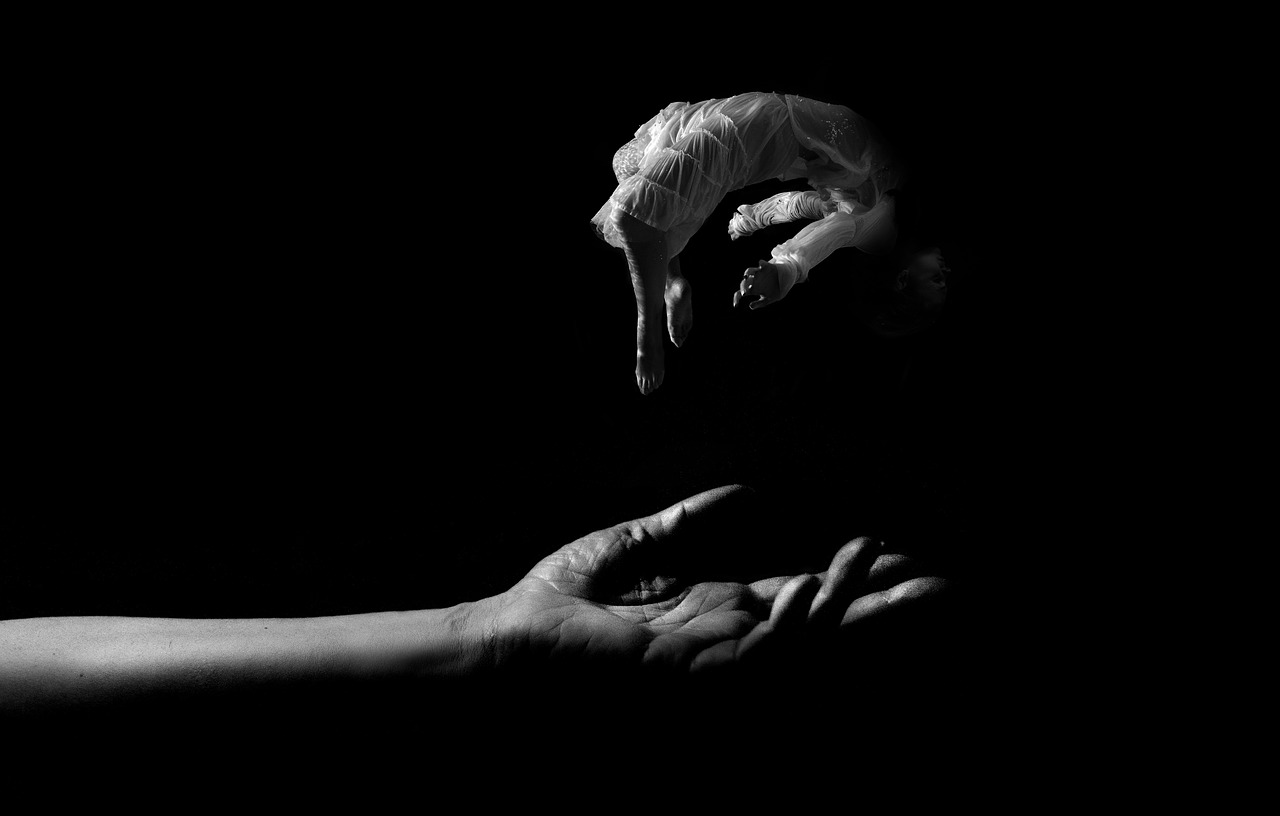
Soren Kierkegaard's profound insights into existentialism have not only shaped his time but have also resonated through the corridors of modern philosophy. His emphasis on the individual's subjective experience and the importance of personal choice laid the groundwork for many existential thinkers who followed. Think about it: how often do we see his influence in the works of philosophers like Friedrich Nietzsche and Jean-Paul Sartre? These thinkers, while distinct in their approaches, drew heavily from Kierkegaard's explorations of individuality, freedom, and the essence of human existence.
One of the most significant aspects of Kierkegaard's philosophy is his insistence on the importance of personal experience over objective truths. This idea can be likened to a compass guiding individuals through the murky waters of existence, where societal norms and expectations often obscure the true path to self-realization. In a world that frequently prioritizes collective beliefs, Kierkegaard's call for introspection and personal faith stands out as a beacon of authenticity.
Moreover, Kierkegaard's concept of the "leap of faith" has become a pivotal topic in modern discussions about belief and spirituality. It challenges individuals to embrace uncertainty, suggesting that true understanding and connection with the divine require a courageous departure from rationality. This idea resonates deeply in contemporary debates on faith, where many grapple with the tension between belief and skepticism.
To illustrate Kierkegaard's influence, let's look at how his ideas have permeated various philosophical movements:
| Philosopher | Key Influence from Kierkegaard | Contribution to Existentialism |
|---|---|---|
| Friedrich Nietzsche | Critique of morality and the "Übermensch" | Emphasized individualism and the creation of personal values. |
| Jean-Paul Sartre | Existence precedes essence | Focused on freedom, choice, and the burden of responsibility. |
| Martin Heidegger | Being and Nothingness | Explored the nature of existence and the concept of "Being." |
As we can see, Kierkegaard's thoughts on individuality and the subjective nature of existence have paved the way for a rich tapestry of existential thought. His influence extends beyond philosophy into literature, psychology, and theology. Writers and thinkers continue to draw upon his ideas, exploring the complexities of human emotion and the search for meaning in a seemingly indifferent universe.
In conclusion, Kierkegaard's legacy is not merely academic; it is a living, breathing part of our ongoing quest for understanding. His challenge to embrace the paradoxes of faith and existence remains relevant today, urging each of us to confront our own beliefs and choices. As we navigate our paths, Kierkegaard's work invites us to reflect on what it means to be authentically human in a world filled with uncertainties.
- What is existentialism?
Existentialism is a philosophical movement that emphasizes individual existence, freedom, and choice, asserting that individuals create their own meaning in a world that can often seem chaotic and indifferent. - How did Kierkegaard influence modern philosophy?
Kierkegaard's focus on individuality, anxiety, and the subjective nature of faith laid the groundwork for later existential philosophers, shaping modern discussions on personal freedom and the nature of existence. - What is the "leap of faith"?
The "leap of faith" is a concept introduced by Kierkegaard, suggesting that true belief requires embracing uncertainty and making choices that transcend rational understanding. - Why is individuality important in Kierkegaard's philosophy?
Kierkegaard believed that true selfhood emerges through personal choices and commitments, contrasting with societal expectations that often suppress authentic existence.
Frequently Asked Questions
- What is Soren Kierkegaard's main contribution to existentialism?
Soren Kierkegaard is often regarded as the father of existentialism. His main contribution lies in his emphasis on individuality and the importance of personal choice. He argued that true selfhood emerges when individuals make authentic choices, rather than conforming to societal expectations.
- How does Kierkegaard define anxiety?
Kierkegaard viewed anxiety as a fundamental aspect of the human condition. He believed that anxiety can lead to a deeper self-awareness and understanding of one's existence. It’s not merely a negative feeling but a catalyst for personal growth and existential reflection.
- What are the three stages of existence according to Kierkegaard?
Kierkegaard proposed three stages of existence: the aesthetic, the ethical, and the religious. Each stage represents a different approach to life. The aesthetic stage focuses on pleasure, the ethical stage emphasizes moral commitments, and the religious stage encourages a leap of faith into deeper spiritual understanding.
- What does the 'leap of faith' mean in Kierkegaard's philosophy?
The 'leap of faith' is a central concept in Kierkegaard's thought, where individuals are encouraged to embrace uncertainty and make choices that go beyond rational understanding. It’s about trusting in something greater than oneself and finding meaning through that personal commitment.
- How does Kierkegaard view faith?
Kierkegaard argued that faith is inherently subjective. He emphasized that personal belief and individual experience are more significant than objective truths. This perspective challenges traditional views on religion and knowledge, urging individuals to seek their own understanding of faith.
- What role do paradoxes play in Kierkegaard's philosophy?
Paradoxes are integral to Kierkegaard's philosophy. He believed that contradictions within faith and existence reflect the complexity of human experience. By confronting and accepting these paradoxes, individuals can embark on a more profound search for meaning.
- How has Kierkegaard influenced modern existential thought?
Kierkegaard's ideas laid the groundwork for later existential philosophers like Nietzsche and Sartre. His focus on individuality, freedom, and the nature of existence has significantly shaped contemporary discussions in philosophy, psychology, and theology.

